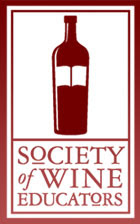I’ve read so much on the subject of wine reviews lately, and have even shot my own mouth off about it in the past few weeks. The debate between the purists and the new vanguard of winemaking has been brimming over with steaming bile for several years now, and it really is a load of crap. You see, the whole mystique about wine is that it is meant to be enjoyed, not reviewed. Yet there are so many of us posturing on how this wine is fantastic and that wine is terrible, how this producer is genius and that producer is mad, and so on. There is a bit of something for everyone, which is why the adage “variety is the spice of Life” is so apropos when discussing wine.
As a retailer, I have had to learn how to differentiate between my own personal tastes, and the varying palates of my customers. I was able to learn this from many people in the industry over the years, and I have tried to apply that knowledge to my current position, but it’s not an exact science. You are almost always going to miss the mark from time to time, because of all the different flavor preferences and all the latest trends in the industry, so you are never, ever going to be 100% on the money with the wines you bring into your store. I use a number of resources to make such determinations: past experience with certain brands, wine reviews, customer insight, tasting the wines, pricing. All of these things contribute to the buying process.
The use of the press has always been a double-edged sword in the fact that while it may help you convey to the customer what the wine has to offer them, it is an almost-entirely biased author providing the review, regardless of that reviewer’s acknowledgement or denial of such bias, and the score assigned to said wine is inherently flawed due to the fact that it is not an assessment of quality but of body size (what I lovingly refer to as BIGNESS). It is difficult to explain that fact to the customers due to our past indoctrination of the 100-point scale during our youth (I still have those final exam dreams, don’t you?). Many customers have been acclimated to this ratings scale and have been conditioned to believe that the rating is an absolute indicator of quality. It’s not. Yet the arguments both for and against continue to rage on, because those for the scores contend that it helps facilitate one’s learning curve, broadening one’s palate. Those arguing against the scores feel that reviewers such as Robert Parker, James Laube and James Suckling of Wine Spectator, and the like, are leading to the homogenization of the wine industry. Typically the debate is divided between the new vanguard (those for) and the traditionalists (those against), but that assessment is not as clearly delineated as one would think.
Many wine aficionados would agree that critics such as Parker and Wine Spectator have done great things in opening up the wine world to hundreds of thousands of new wine drinkers, ones who arguably would not have been reached otherwise. These publications have been highly successful in furthering the wine education of America, and other parts of the world. But the opponents of the rating system feel that in doing so, they have distorted what wine is truly for: an accompaniment to food. The big, opulent fruit bombs that Parker and Wine Spectator laud so highly are for the most part, uncomplimentary to food, yet again, the taste-is-subjective debate would present the contrarian opinion that people should drink what they like with their food and forget the old-school mentality of sommeliers and the like. Traditions be damned!
Whatever your stance on this issue, or whether or not you even care, the real goal is for you to discover, on your own, what your likes and dislikes are, and forget all the pundits and what they tell you to do. Utilize their information, but don’t accept it as gospel.
A lot of what I discuss in my blog is merely a momentary rant-and-rave session that serves to let off some steam. Don’t let that dissuade you from making up your own minds about wines. My years of experience in the business sometimes cloud my judgment and force me from time to time to reevaluate my opinions, a kind of stepping back period if you will. Helps maintain a bit of perspective. At the end of the day, all I can do is make recommendations based upon my experience and tasting knowledge of the inventory. Neither I nor anyone here at Liquor Direct wants to force wines on our customers because of mitigating circumstances. We truly enjoy talking about wine and we love recommending a whole myriad of choices. We do utilize reviews as a means to help talk about the wines when we cannot, but we never ever want anyone to believe that the review is all there is to know about the wine. There is always more to the story than one scrap of paper hanging from the shelf sign. A lot more.
Likewise there is much more to the reviews of virtually every wine on the market today. There are so many different wines out there, and that is what makes this business so exciting. You will never get bored. And you will never be without an ocean of opinion. All that I ever ask of my customers is that they recognize that these reviewers do not have the final word on a particular wine – they (the customers) do. Wine has to be considered one of the most singularly personal and direct multisensory experiences ever. An artist creating a fluid work, and through various brokerages, it lands in the hands of its intended audience, to accentuate a meal, highlight a conversation, elevate a mood, or alleviate stress. It is meant to be a soft milieu for which to enhance one particular moment in one’s daily life. Nothing more. Inevitably, we as wine consumers will see that, and the days of wine reviews will no longer be necessary. Until that time, it is a necessary evil.
Subscribe to:
Post Comments (Atom)








No comments:
Post a Comment